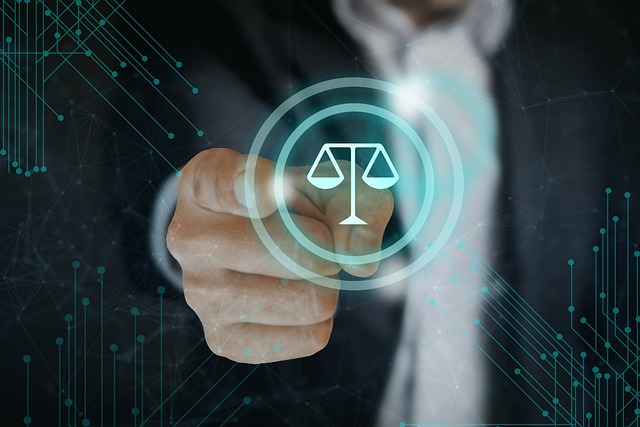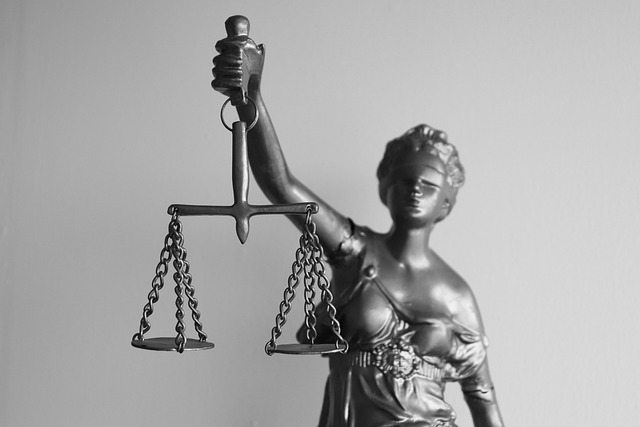Environmental crime trials, especially securities fraud cases, face Regulatory Challenges in Securities Fraud Cases, requiring intricate legal strategies due to complex financial schemes and ecological impacts. These high-stakes cases demand a multidisciplinary approach involving legal professionals, environmental scientists, and experts from diverse fields. Overlapping jurisdictions and missing guidelines on indirect environmental harm pose significant challenges, allowing accused parties to exploit loopholes. Successful trials, like prosecuting a major oil company for pollution, establish powerful precedents for environmental justice. Enhancing legislation and international cooperation are crucial to address these Regulatory Challenges in Securities Fraud Cases, strengthen environmental protection, deter future offenses, and hold perpetrators accountable.
“Unveiling the Complex World of Environmental Crime Trials, this article explores a critical aspect of modern justice. We delve into the legal intricacies, particularly focusing on securities fraud cases within the environmental sector, where regulatory challenges create a complex web. Understanding these trials involves navigating overlapping jurisdictions and identifying gaps in current legislation. By examining case studies, we highlight successful prosecutions that have shaped environmental justice. Furthermore, we offer insights into future prospects, emphasizing the potential for enhanced legal frameworks to combat Regulatory Challenges in Securities Fraud Cases.”
- Understanding Environmental Crime Trials: A Legal Perspective
- The Rise of Securities Fraud Cases in the Eco-Space
- Regulatory Challenges: Gaps and Overlapping Jurisdiction
- Case Studies: Successful Prosecutions and Their Impact
- Future Outlook: Enhancing Environmental Justice Through Legislation
Understanding Environmental Crime Trials: A Legal Perspective

Environmental crime trials present a unique legal landscape, especially when addressing complex issues such as securities fraud within the context of environmental regulations. These high-stakes cases often involve intricate financial schemes and their impact on the natural world, requiring a meticulous approach from legal professionals. The Regulatory Challenges in Securities Fraud Cases further complicate matters, as lawyers must navigate a web of laws and standards to ensure justice is served.
In these jury trials, achieving extraordinary results necessitates a deep understanding of environmental law and its intersection with financial markets. Lawyers play a pivotal role in presenting evidence that connects the dots between fraudulent activities and their ecological consequences. By doing so, they not only uphold the integrity of the legal system but also foster awareness about the profound effects of such crimes on our planet.
The Rise of Securities Fraud Cases in the Eco-Space

In recent years, the intersection of environmental conservation and financial markets has seen an alarming rise in securities fraud cases. This surge is largely attributed to increased scrutiny and awareness of ecological issues, which have led to more stringent regulations and a growing demand for accountability. As environmental concerns become increasingly global and pressing, so too does the need for robust legal frameworks to combat the financial crimes that accompany them. The regulatory challenges in securities fraud cases are significant, with regulators facing the daunting task of keeping pace with ever-evolving schemes aimed at manipulating markets related to renewable energy, conservation efforts, and sustainable practices.
High-stakes cases involving environmental issues often require a unique blend of legal expertise and an understanding of complex ecological dynamics. These cases not only attract significant media attention but also have profound implications for both the financial and natural worlds. Achieving extraordinary results in these trials necessitates a collaborative effort between legal professionals, environmental scientists, and experts from various fields to unravel intricate financial networks and their impact on the environment. The involvement of philanthropic and political communities is increasingly vital, as they play pivotal roles in shaping policies and driving initiatives that combat environmental crime, ultimately ensuring accountability and preserving our planet’s future.
Regulatory Challenges: Gaps and Overlapping Jurisdiction

Environmental crime trials present unique regulatory challenges due to gaps and overlapping jurisdictions. In securities fraud cases, for instance, companies and individuals face a complex web of regulations designed to protect investors and the environment. However, these laws often lack clear guidelines on accountability and responsibility when environmental harm is caused indirectly through financial transactions. Overlapping jurisdiction further complicates matters, as multiple agencies—such as the Securities and Exchange Commission (SEC) and the Environmental Protection Agency (EPA)—may have authority over the same incident.
This scenario can lead to legal confusion and a winning challenging defense verdict for accused parties if there is a complete dismissal of all charges. The lack of clarity in regulatory oversight can hinder effective prosecution, allowing perpetrators to exploit loopholes and avoid justice. As such, it’s crucial for both regulatory bodies and legal professionals to work collaboratively to bridge these gaps and establish consistent, clear guidelines that ensure environmental accountability while maintaining the integrity of jury trials.
Case Studies: Successful Prosecutions and Their Impact

Successful environmental crime trials have served as powerful case studies, demonstrating the effectiveness of legal strategies in holding perpetrators accountable for their actions. One notable example is the prosecution of a major oil company for illegal dumping and pollution, which resulted in significant fines and a lasting impact on the company’s reputation. This case not only brought justice to affected communities but also set a precedent for future environmental prosecutions.
These trials often face complex regulatory challenges similar to securities fraud cases, where proving intent and quantifying damages can be difficult. However, successful outcomes, such as substantial monetary penalties and injunctions, have shown that the legal system can effectively tackle white-collar and economic crimes. By studying these case studies, attorneys can gain valuable insights into navigating the intricacies of environmental legislation, ensuring their clients’ rights are protected while striving for justice and prevention of future violations.
Future Outlook: Enhancing Environmental Justice Through Legislation

As we look to the future of environmental justice, enhancing legislation plays a pivotal role in addressing the growing concern of environmental crimes. The current landscape presents significant regulatory challenges, particularly in securities fraud cases, where complex financial schemes often have far-reaching environmental consequences. However, these high-stakes cases offer an opportunity to establish precedent and strengthen laws targeting white collar and economic crimes.
By implementing stricter regulations and fostering international cooperation, the legal system can achieve extraordinary results in holding perpetrators accountable. This approach ensures that environmental protection becomes an integral part of corporate governance, deterring future offenses and promoting sustainable practices. The pursuit of justice in these cases not only brings much-needed accountability but also sends a powerful message about the value of our natural resources and the consequences of their exploitation.
Environmental crime trials, particularly those focusing on securities fraud, present unique challenges within a complex regulatory landscape. As seen through various case studies, successful prosecutions not only serve as deterrents but also highlight the importance of robust legislation to address regulatory gaps. The rise in eco-space fraud cases demands a comprehensive approach, especially with overlapping jurisdictions. Moving forward, enhancing environmental justice requires updated legal frameworks that can effectively navigate these challenges, ensuring accountability and protection for our planet’s resources. By addressing Regulatory Challenges in Securities Fraud Cases, we can foster a more sustainable and legally sound future.






